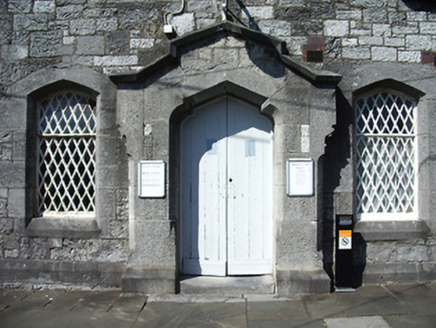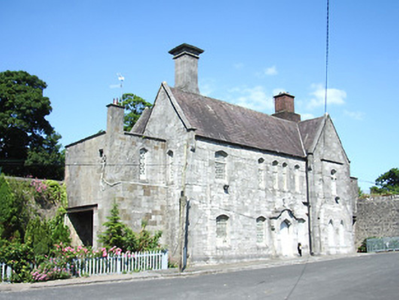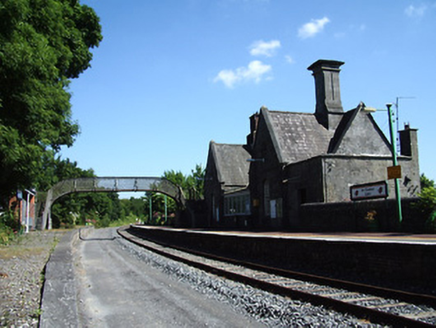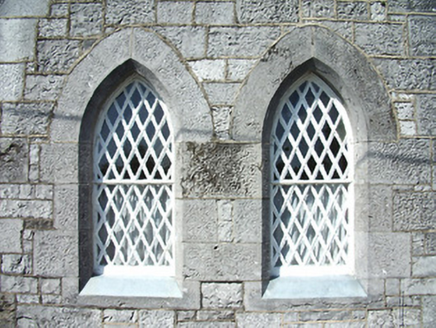Survey Data
Reg No
22111017
Rating
Regional
Categories of Special Interest
Architectural, Artistic, Historical, Social
Original Use
Railway station
In Use As
Railway station
Date
1850 - 1855
Coordinates
205321, 125097
Date Recorded
27/06/2005
Date Updated
--/--/--
Description
Detached U-plan Gothic Revival railway station, built 1852, having two-storey front with gable-fronted east end bay, south, elevation, single-storey with attic returns to each end at rear, flat-roofed one-bay two-storey block to west gable, one-bay single-storey block to east, and lean-to infill block between rear returns. Windows to gable-front set into slight projection with canopy. Pitched slate roofs, with carved limestone copings having moulded kneelers, cast-iron rainwater goods, with stout chimneystacks, one chamfered ashlar limestone with moulded coping and other red brick, and with cut limestone chimneystack to west block. Mono-pitched roof on metal bracket to toilet block at north elevation. Snecked cut limestone walls with stepped cut limestone plinth course to front elevation. Pseudo-four-centered arch window openings throughout except for paired pointed arch windows to ground floor of gable-front, all with chamfered cut limestone block-and-start surrounds, having quarry glazing, with pivoting upper glazing. Gable-fronted main entrance is flanked by windows and has chamfered cut limestone surround to shouldered pseudo-four centered opening, with carved limestone Dutch-style coping with moulded kneelers, timber battened double-leaf door and limestone threshold. Infill to north, trackside, elevation has snecked roughly-dressed limestone plinth wall, recent lattice glazing and recent timber battened door.
Appraisal
Designed by W.G. Murray in 1851, while working for William Dargan, Cahir's railway station addresses its site cleverly in having a two-storey façade, with a single-storey to the elevated platform at the rear. The main elevation has an interesting play of surface texture between the cut stone and the quarry glazed windows, while the profile of the rear is dominated by the complex roof forms and tall, stout chimneystacks. This well-maintained building makes a significant artistic contribution to the architectural diversity of Cahir, and is one of a group of high-quality structures associated with this railway station.







